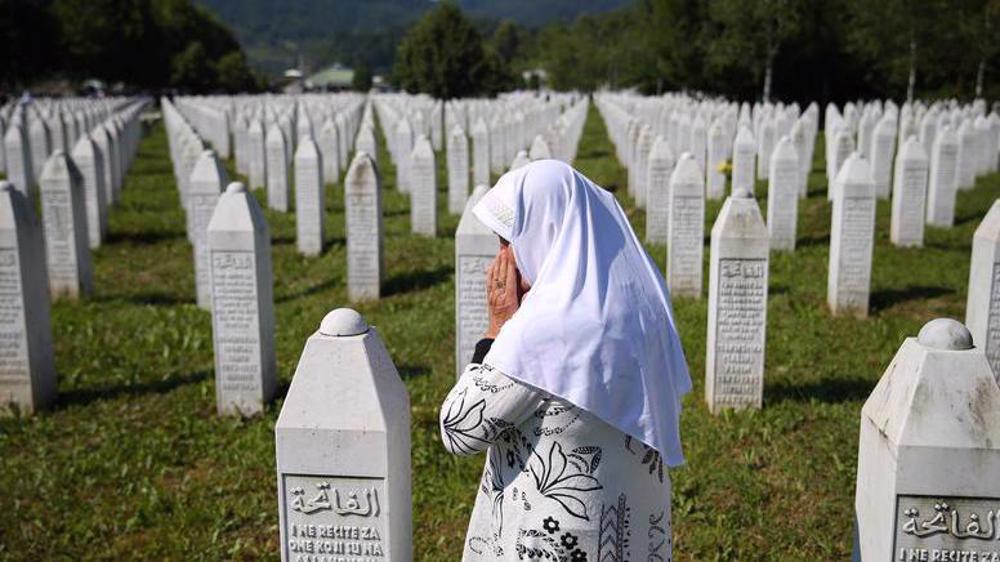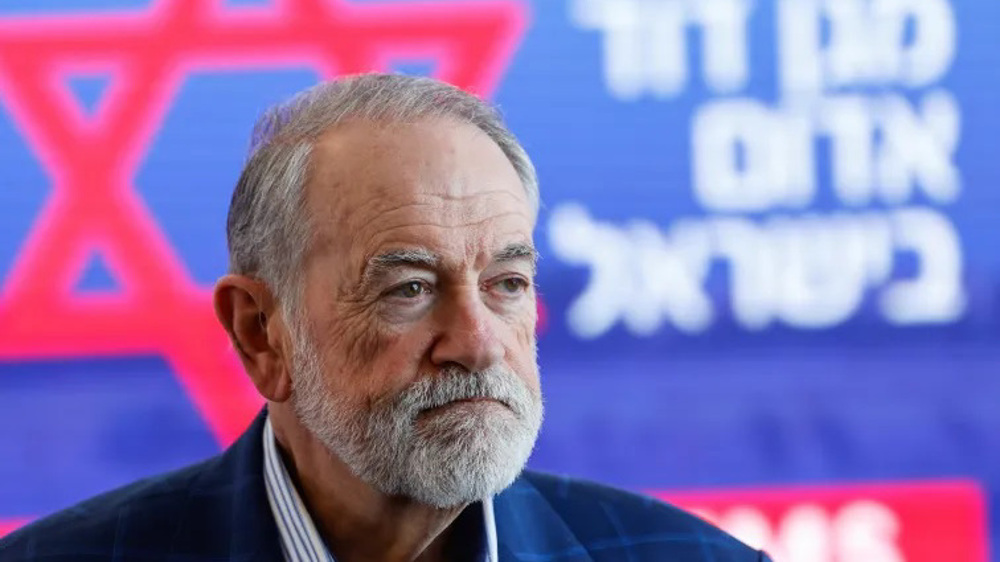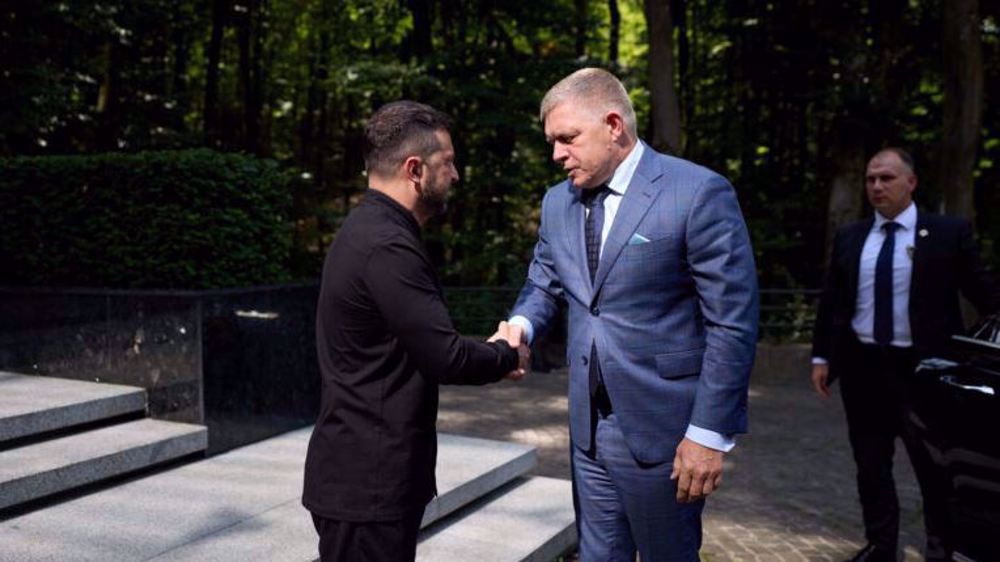Bosnian Muslims mark 29th anniversary of Srebrenica massacre
Thousands of people in Bosnia and Herzegovina have gathered to commemorate the 29th anniversary of the Srebrenica massacre, the deadliest mass killing in Europe since the Second World War.
Braving intense heat, solemn mourners gathered in the Bosnian town of Srebrenica on Thursday to remember the massacre of Bosnian Muslims in 1995, a horrendous crime that Serb officials continue to deny.
The remains of 13 men and one teenage boy were buried at a large memorial cemetery located just outside Srebrenica, in eastern Bosnia. Two days earlier, Bosnia and Herzegovina had sent the remains to Potocari village.
They were added to the more than 6,600 victims of the massacre who had already been reinterred in the ever-expanding memorial cemetery.
Family members of the victims are often able to inter only partial remains of their loved ones, which are typically discovered scattered across multiple mass graves, sometimes kilometers apart.
The Srebrenica genocide, also known as the Srebrenica massacre, occurred in July 1995 during the Bosnian War. Srebrenica, located in eastern Bosnia and Herzegovina, was declared a United Nations safe area in 1993, protected by Dutch UN peacekeepers.
In July 1995, Bosnian Serb forces led by General Ratko Mladić overran Srebrenica, which was predominantly inhabited by Bosniaks (Bosnian Muslims), despite its designation as a safe area.
The Dutch peacekeepers failed to prevent the Bosnian Serb forces from entering the town and in less than two weeks, Bosnian Serb forces systematically massacred more than 8,000 Bosniak men and boys and dumped their bodies in numerous mass graves in an attempt to hide their crime.
The genocide included mass executions, forced deportations, and other atrocities.
The UN was heavily criticized for failing to protect the safe area and for the subsequent massacre.
The International Criminal Tribunal for the former Yugoslavia (ICTY) for the first time classified the events in Srebrenica as genocide. Citing evidence by ICTY, the International Court of Justice in The Hague in 2007 also described what happened in Srebrenica and its surroundings as genocide.
The Srebrenica genocide triggered widespread outrage and contributed to international intervention in the Bosnian War. The war lasted until December 14, 1995, and more than 100,000 people were killed and two million more were displaced.
The fate of almost 7,000 people who disappeared during the war is still unknown.
Efforts to prosecute those responsible for war crimes continue even to this day, with many individuals involved in the genocide being convicted by international courts.
So far, 45 Serbs have been convicted and collectively sentenced to 699 years in prison across various court cases.
In May, the UN General Assembly voted to designate July 11 as the International Day of Reflection and Commemoration of the 1995 Genocide in Srebrenica.
At least 7 killed in Israeli aggression on southern Lebanon after Hezbollah strikes
Iran writes to UN, warns about dire consequences for perpetrators following Leader's martyrdom
Hezbollah strikes occupied Haifa in retaliation for Leader's assassination
Ansarullah mourns Leader's martyrdom as 'great loss' caused by 'most wretched terrorists'
Hezbollah offers condolences to Iranian nation over Leader’s martyrdom
US-Israeli strike targets IRIB facility; broadcasts continue
IRGC: Latest waves of Op. True Promise 4 led to tanker strikes, base shutdowns, heavy casualties
CENTCOM confirms US troops killed in Iran’s retaliatory strikes











 This makes it easy to access the Press TV website
This makes it easy to access the Press TV website